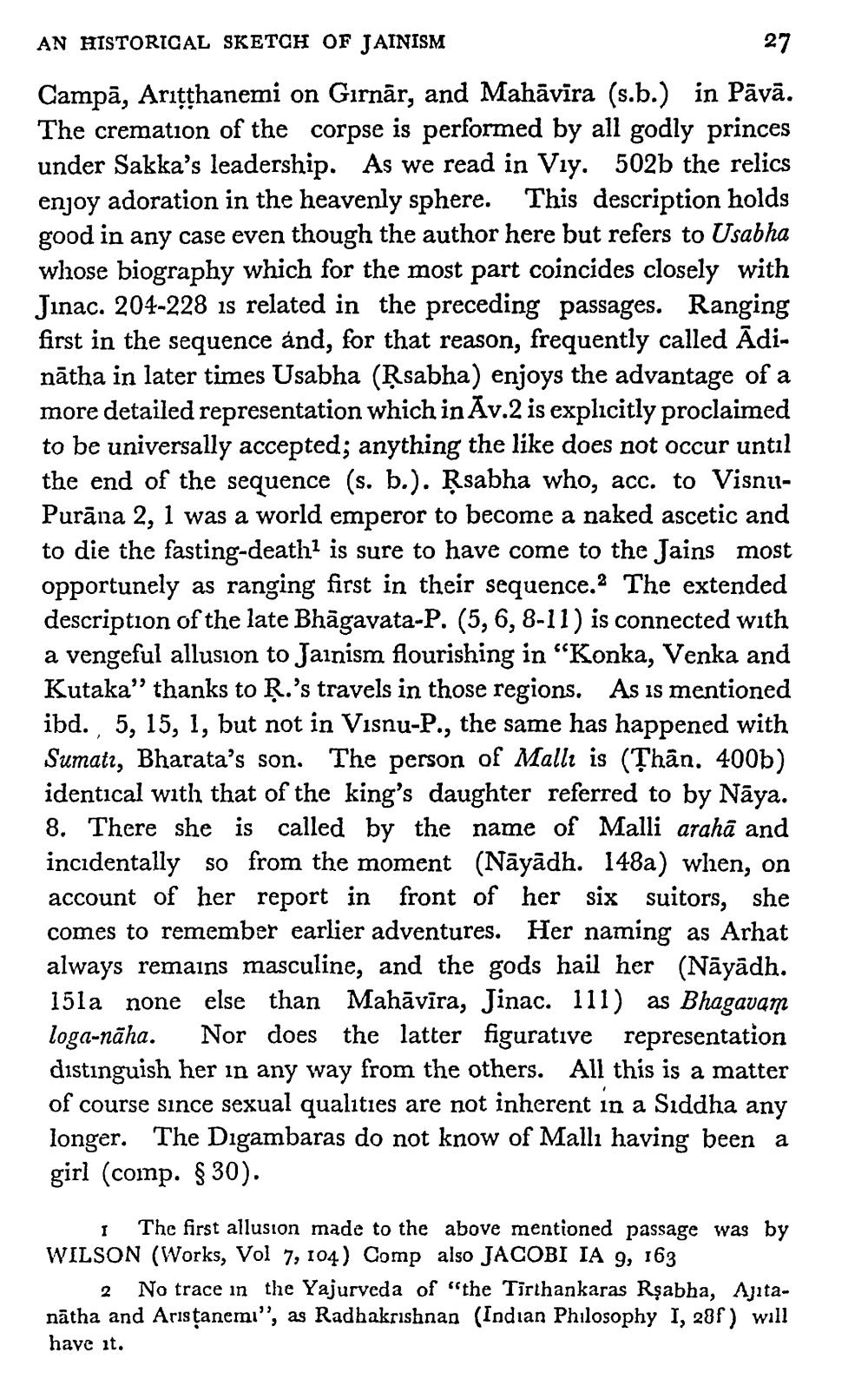________________
AN HISTORICAL SKETCH OF JAINISM
27 Campā, Arıthanemi on Gırnār, and Mahāvīra (s.b.) in Pāvā. The cremation of the corpse is performed by all godly princes under Sakka's leadership. As we read in Viy. 502b the relics enjoy adoration in the heavenly sphere. This description holds good in any case even though the author here but refers to Usabha whose biography which for the most part coincides closely with Jinac. 204-228 is related in the preceding passages. Ranging first in the sequence and, for that reason, frequently called Ādinātha in later times Usabha (Rsabha) enjoys the advantage of a more detailed representation which in Āv.2 is explicitly proclaimed to be universally accepted; anything the like does not occur until the end of the sequence (s. b.). Rsabha who, acc. to VisnuiPurāna 2, 1 was a world emperor to become a naked ascetic and to die the fasting-death is sure to have come to the Jains most opportunely as ranging first in their sequence.2 The extended description of the late Bhāgavata-P. (5, 6, 8-11) is connected with a vengeful allusion to Jainism flourishing in "Konka, Venka and Kutaka" thanks to R.'s travels in those regions. As is mentioned ibd., 5, 15, 1, but not in Visnu-P., the same has happened with Sumatı, Bharata's son. The person of Malli is (Thân. 400b) identical with that of the king's daughter referred to by Nāya. 8. There she is called by the name of Malli araha and incidentally so from the moment (Nāyādh. 148a) when, on account of her report in front of her six suitors, she comes to remember earlier adventures. Her naming as Arhat always remains masculine, and the gods hail her (Nāyādh. 151a none else than Mahāvīra, Jinac. 111) as Bhagavam loga-näha. Nor does the latter figurative representation distinguish her in any way from the others. All this is a matter of course since sexual qualities are not inherent in a Siddha any longer. The Digambaras do not know of Mallı having been a girl (comp. $ 30).
1 The first allusion made to the above mentioned passage was by WILSON (Works, Vol 7, 104) Comp also JACOBI IA 9, 163
2 No trace in the Yajurveda of "the Tīrthankaras Rşabha, Ajitanātha and Aristanemi', as Radhakrishnan (Indian Philosophy I, 28f) will have it.




